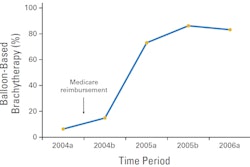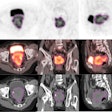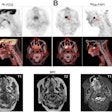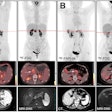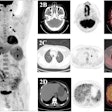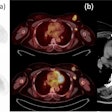Yoga offers unique benefits for breast cancer patients undergoing radiation therapy, according to research from MD Anderson Cancer Center at the University of Texas scheduled to be presented at next month's American Society of Clinical Oncology (ASCO) annual meeting in Chicago.
Patients who participated in yoga that incorporated yogic breathing, postures, meditation, and relaxation techniques into their treatment plan experienced improved physical functioning, better general health, and lower stress hormone levels.
Lorenzo Cohen, PhD, professor and director of MD Anderson's integrative medicine program, led the study, which formally assessed benefits to patients who performed yoga, compared with an active control group that performed simple stretching exercises. The Swami Vivekanada Yoga Anusandhana Samsthana yoga research institution in Bangalore, India, also collaborated.
The study enrolled 163 women who were randomized to yoga, stretching, or no formal exercise. Participants in the yoga and stretching groups attended sessions specifically tailored to breast cancer patients for one hour, three days a week, throughout their six weeks of radiation treatment.
Participants were asked to report on their quality of life, including fatigue, daily functioning, benefit finding, depression, and spirituality. Saliva samples were collected and electrocardiogram tests were administered at baseline, end of treatment, and at one, three, and six months post-treatment.
After completing radiation treatment, only the women in the yoga and stretching groups reported a reduction in fatigue. At one, three, and six months after radiation therapy, women who practiced yoga during the treatment period reported greater benefits to physical functioning and general health. They were more likely to perceive positive life changes from their cancer experience than women in the other groups.
Women who practiced yoga also had the steepest decline in cortisol levels across the day, indicating that yoga had the ability to regulate this stress hormone. This is particularly important because higher stress hormone levels throughout the day, known as a blunted circadian cortisol rhythm, have been linked to worse outcomes in breast cancer, according to Cohen and colleagues.
Cohen and his team will next conduct a phase III clinical trial of breast cancer patients to further determine the mechanisms of yoga that lead to improved physical functioning, quality of life, and biological outcomes during and after radiation treatment. A secondary aim of the trial will be to conduct cost-efficiency analysis for the hospital, evaluate healthcare usage costs in general, and examine work productivity of patients.







